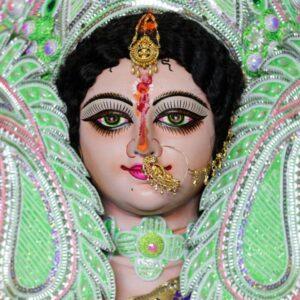
Hindu mythology, a captivating tapestry of ancient narratives, deities, and moral principles, has profoundly shaped India’s spiritual and cultural landscape for millennia. This blog delves into the significance of these myths, unraveling their profound meanings and the enduring values they impart. We’ll explore how these ancient stories continue to resonate in contemporary Indian society, influencing traditions, rituals, and beliefs.
Historical Context and Origins
The roots of Hindu mythology can be traced back to ancient texts like the Vedas and Puranas. The Vedas, the oldest sacred scriptures in Hinduism, comprise hymns, prayers, and rituals central to early Hindu practices. They offer glimpses into the early development of Hindu thought and cosmology. The Puranas, on the other hand, narrate the history of the universe, encompassing creation, preservation, and destruction, interwoven with tales of gods, goddesses, and legendary heroes. These texts provide a framework for understanding the cyclical nature of time and existence in Hindu cosmology. Epic narratives like the Mahabharata and Ramayana hold pivotal positions in Hindu mythology, detailing the lives and deeds of iconic figures such as Krishna and Rama. These epics explore complex themes of dharma (righteousness), karma (action and consequence), and the eternal struggle between good and evil.
Major Deities and Their Significance
Hindu mythology encompasses a vast pantheon of deities, each possessing unique attributes and symbolic meanings. These deities represent different aspects of the divine and play crucial roles in maintaining cosmic order. Let’s explore some of the prominent figures:
- Brahma: The creator god, responsible for bringing the universe into existence. He is often depicted with four heads, symbolizing his omniscience and the four Vedas.
- Vishnu: The preserver god, tasked with maintaining balance and order in the cosmos. Vishnu is known for his ten avatars (incarnations), including Rama and Krishna, each appearing at critical junctures to restore dharma.
- Shiva: The destroyer and transformer god, representing the cyclical nature of creation and destruction. Shiva is revered as a powerful force of both destruction and regeneration, embodying the paradoxical nature of existence.
- Lakshmi: The goddess of wealth, prosperity, and fortune. She is often depicted alongside Vishnu, symbolizing the blessings of material and spiritual abundance.
- Saraswati: The goddess of knowledge, wisdom, music, and the arts. She is revered as the patron deity of learning and creativity.
- Durga: The warrior goddess, embodying strength, protection, and the triumph of good over evil. She is often depicted riding a lion and wielding multiple weapons, symbolizing her power and fierceness.
Poojn.in offers a wide selection of Lord Shiva murtis, Radha Krishna statues, and depictions of other deities, allowing you to bring these sacred representations into your home.
Symbolism and Moral Lessons
Hindu myths are replete with symbolism, conveying profound moral lessons and ethical guidelines that have resonated through generations. These stories offer valuable insights into human nature, the consequences of actions, and the pursuit of a righteous life. Some recurring themes include:
- The battle between good and evil: This timeless theme underscores the importance of upholding dharma and resisting adharma (unrighteousness).
- Dharma (righteousness): This concept emphasizes living in accordance with cosmic order and fulfilling one’s moral duties.
- Karma (action and consequence): This principle highlights the interconnectedness of actions and their consequences, shaping one’s present and future lives.
The story of Samudra Manthan (the churning of the ocean), for instance, symbolizes the pursuit of knowledge, immortality, and the importance of collaboration and perseverance. The Ramayana emphasizes loyalty, honor, and the triumph of good over evil, providing a moral compass for navigating life’s challenges.
Rituals and Cultural Practices
Hindu mythology has deeply influenced various rituals and cultural practices in modern India, shaping religious observances, festivals, and life-cycle events. These practices serve as tangible connections to the rich heritage and enduring values of Hinduism.
- Festivals: Diwali, the festival of lights, celebrates Lord Rama’s return to Ayodhya after his exile, symbolizing the victory of light over darkness. Holi, the festival of colors, commemorates the triumph of good over evil through the story of Prahlad and Holika. Poojn.in offers all the essential items you need to celebrate these festivals.
- Puja (worship): Hindu worship often involves reciting stories and hymns from Hindu mythology, invoking the blessings of deities and seeking their guidance. Poojn.in provides a wide range of puja items, including idols, incense, and offerings, to enhance your worship experience.
- Life events: Hindu mythology plays a significant role in various life events, from birth ceremonies to weddings and funerals, providing a framework for marking these important transitions.
Conclusion: The Enduring Legacy of Hindu Mythology
Hindu mythology is not merely a collection of ancient stories; it is a living wellspring of wisdom, ethical guidance, and spiritual inspiration. These timeless narratives, passed down through generations, continue to enrich lives with their teachings on dharma, karma, and the eternal interplay between good and evil. The deities, with their diverse attributes and symbolic representations, inspire devotion, courage, and the pursuit of knowledge and prosperity. By embracing and understanding these ancient stories, we connect with a rich heritage that guides us toward a more meaningful and fulfilling life. Explore the world of Hindu mythology further with Poojn.in’s insightful articles and authentic products, deepening your understanding of this profound tradition. Visit our blog for more information.

